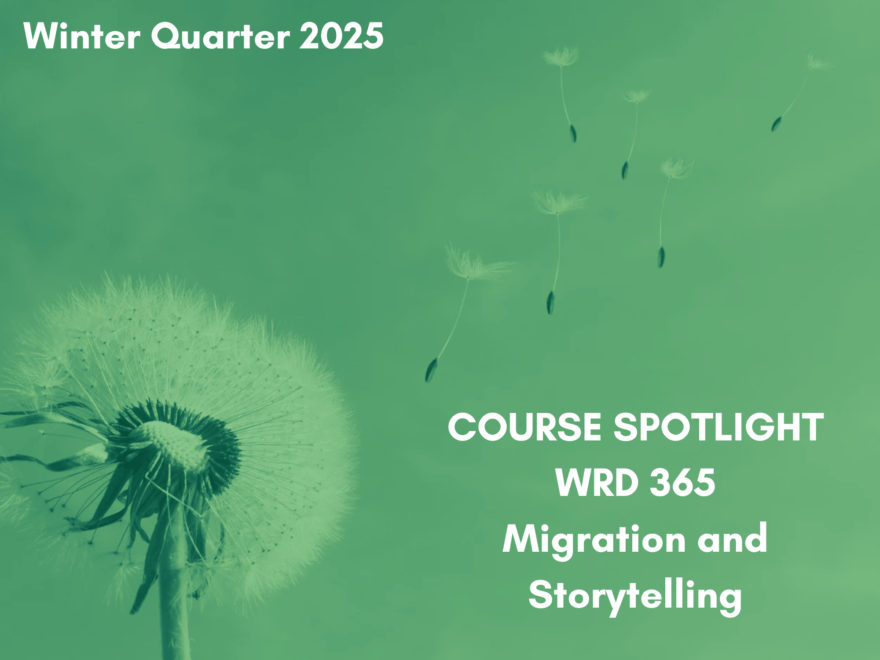Our journey as writers often begins as storytellers. Through this medium, we can tell all kinds of stories about our identity, research, likes, dislikes, and the list goes on! However, sometimes we must listen to outside perspectives–stories from those who we might not usually think to seek. Dr. Monica Reyes, who has an expansive background in work involving displacement and migration studies, is teaching WRD 365: Migration and Storytelling this Winter Quarter 2025. By examining a range of texts—including personal narratives, news articles, opinion pieces, and legal documents—students will evaluate the ethical, cultural, and political aspects of communicating, whether through speaking, writing, listening to, or reading stories about migrants. Here, Dr. Reyes graciously enough provided more information on this course and why it is important to consider this Winter Quarter!
- If an undergrad does not have any existing interest in the topic, how will this course allow them to gain baseline understanding of rhetoric within this context?
First, if an undergraduate has no prior experience with this issue, I encourage them to not hesitate to still take the course. We will take things slowly to make sure that students first have an understanding of basic concepts and terms. Also, while students will read a scholarly article each week, they will also engage with other media that play off those scholarly concepts, like news articles, documentaries, social media posts, human-interest stories, etc.
- How can these stories inform students in their own work going forward? What kind of opportunities can be found through this course if this is the type of work a student is interested in?
Hopefully, students will learn about how important it is to read/ share/ circulate more critically – on any topic, but especially a topic as divisive as migration. So even if students are not considering working professionally in this field, they will complete this course with experience in critiquing their own literacies. Throughout the course, I will remind students of internship and volunteer opportunities that they may pursue related to migration studies, like the Steans Center Community Partner Internship.
- Why is this course important?
This course connects with the WRD department’s goal to add to the undergraduate courses in our unit that center the stories of BIPOC and relevant social issues, like immigration and border policies. This goal aligns with the department’s efforts to seek out ways to enact values of diversity, equity, and inclusion in the WRD department; in 2020, the WRD program established an Equity Committee for just such a purpose, of which I am chair.
Finally, this course is important because migration is an issue that we all need to learn more about! Migration is a complex issue that is often used to spread misinformation, as it can be difficult to fully understand or explain. It’s also tied to emotionally charged topics like religion, identity, jobs, and security. Disinformation on migration exploits the lack of representation and voice of migrants, who are often marginalized both socially and politically.
